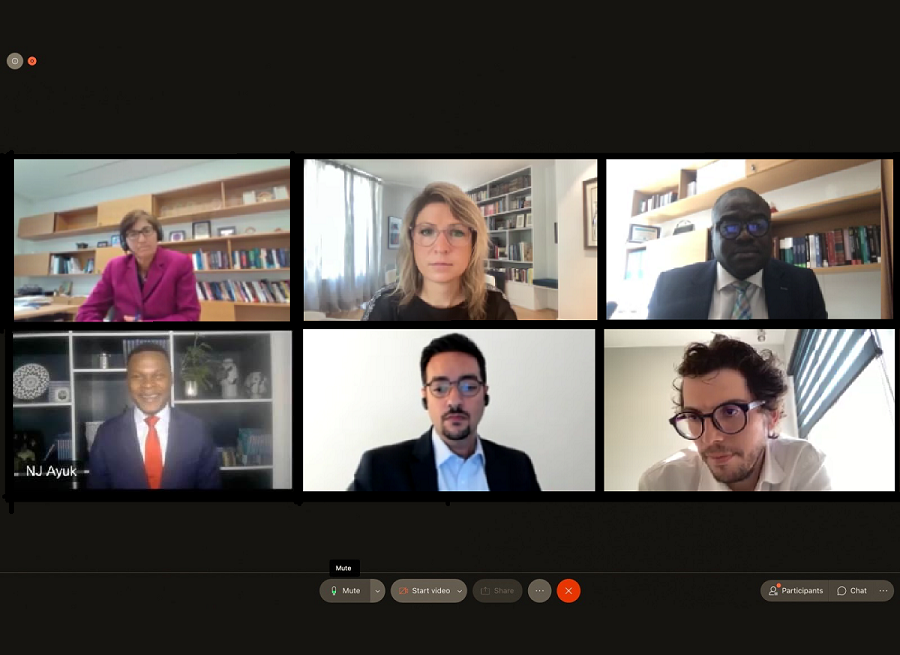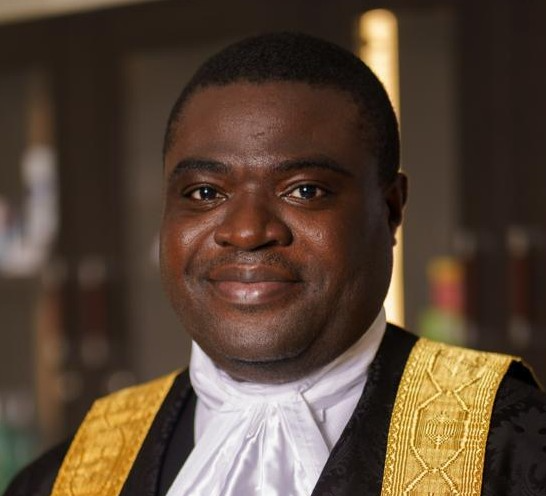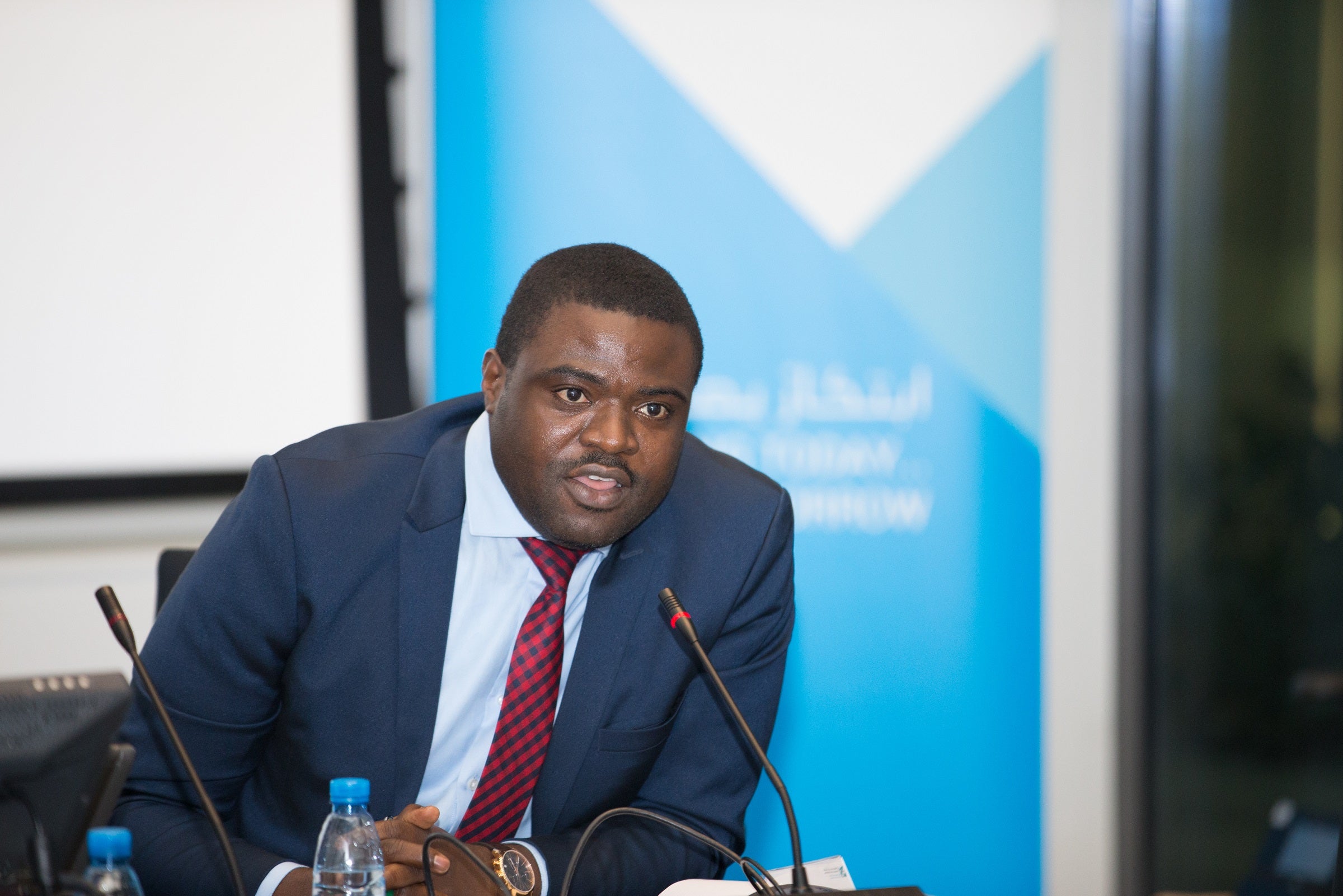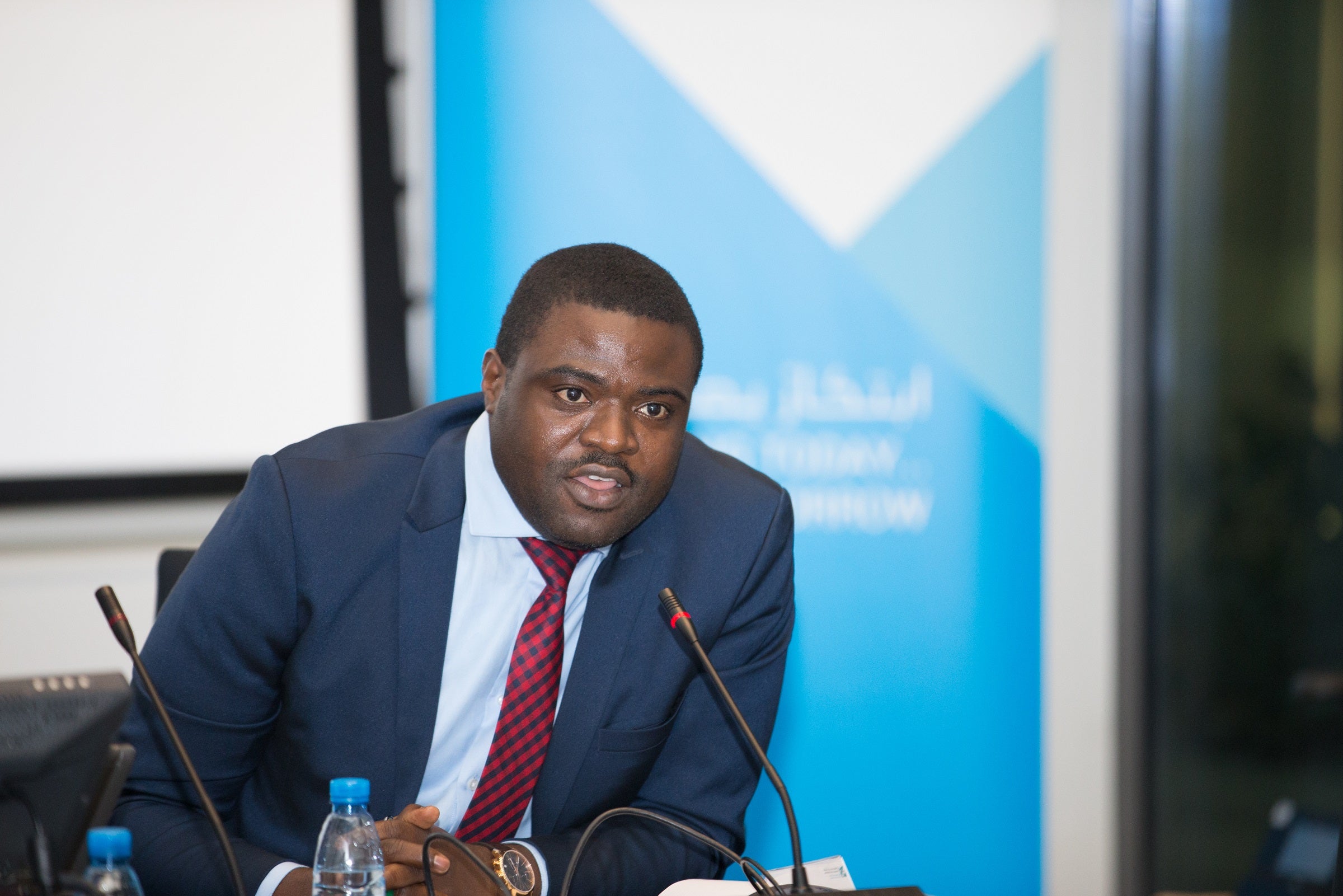
Legal Aspects of Qatar’s Designation as a US Major Non-NATO Ally
Susan L. Karamanian and Sharifa A. Ahen*

On March 10, 2022, United States (US) President Joe Biden officially designated Qatar a major non-NATO ally. Qatar is the 18th State to earn the designation and the third Gulf Cooperation Council State following Kuwait and Bahrain.
The designation conformed to a statement that President Biden made to His Highness Sheikh Tamim bin Hamad Al-Thani, the Amir of Qatar, upon the Amir’s visit to Washington, DC in late January 2022. During the visit, which was held on January 31, 2022, President Biden had sent a letter to the US Congress indicating his intention to make the designation. In the letter, President Biden acknowledged “Qatar’s many years of contributions to US-led efforts in the US Central Command area of responsibility” and recognized that the US had a “national interest in deepening bilateral defense and security cooperation with the State of Qatar.”
Thus, the designation has a historical basis due to Qatar’s support of US foreign policy objectives, such as hosting and providing substantial financial support for the Al Udeid Air Base, and Qatar’s overall engagement on issues of strategic importance, including its recent assistance in relocating thousands of Afghans and its ability to serve as an effective mediator in critical situations. The designation has a critical future dimension with the promise of closer US-Qatar ties.
Legal considerations
What are the legal foundations for the designation and its implications for Qatar? Under a federal statute, the US President has the unilateral power to designate a country a major non-NATO ally with the requirement that Congress receive notice in writing at least 30 days before. As aptly noted, the designation alone does not make Qatar a NATO member and thus the collective security obligations and mutual defense benefits under NATO are not applicable to Qatar.
Yet, in addition to recognizing the close military ties between Qatar and the US, the designation as a major non-NATO ally ensures defense trade and security cooperation benefits. Qatar is now eligible for loans, research, training, and development, as well as establishing a priority to US military equipment and the ability to bid on certain US Department of Defense contracts.
Regional context
Other regional key players have historically benefitted from the designation. Their experience sheds light on the importance of a military and defense relationship with the US, especially given recent global events. For example, Kuwait has benefitted from arms sales through the Foreign Military Sales Program that strengthened the capabilities of the Kuwaiti military. The Biden Administration has supported $1 billion for the US Army Corps of Engineers and other US companies to build Kuwait’s new defense ministry headquarters. A training initiative, the International Military Education and Training (IMET) program enables Kuwaiti students to receive training at US military institutions at a discounted rate. Capacity building is one of the main incentives for cooperation, and it can be of great importance to Qatar, as its defense regime is relatively young and capable of playing an influential role due to the country’s proximity and role as mediator in the region. In other words, the designation has critical long-term benefits to Qatar.
The designation certainly signals closer cooperation between the US and Qatar. History tells us that these designations are ultimately mutually beneficial, and in the case of Qatar its heightened engagement with the US promises to strengthen its status as a security leader in the Middle East.
* Susan L. Karamanian is the Dean of the College of Law at Hamad Bin Khalifa University and Sharifa A. Ahen is a third-year Juris Doctor (JD) student at the college.
This article is submitted on behalf of the author by the HBKU Communications Directorate. The views expressed are the author’s own and do not necessarily reflect the University’s official stance.
Related News

HBKU’S College of Law and Public Policy Colloquium to Examine Dispute Resolution Between Countries
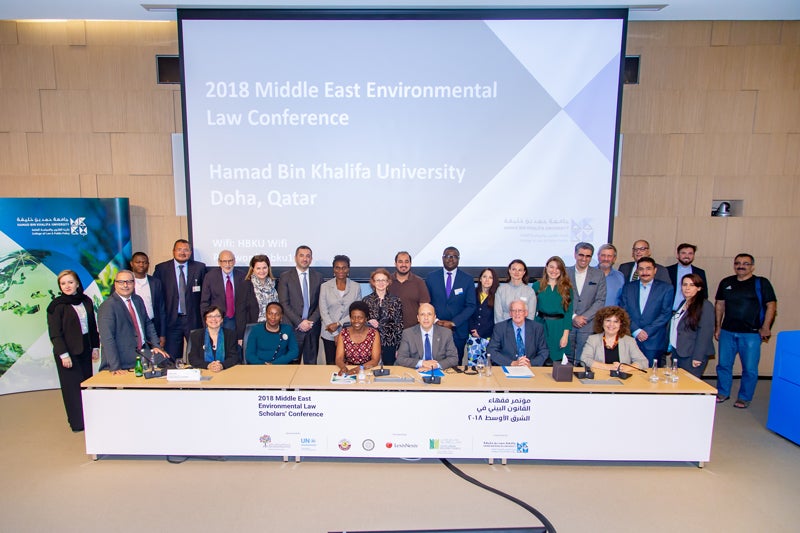
HBKU Conference Highlights Need to Introduce Environmental Law to Higher Education in the Middle East

The Promise of Hybrid Dispute Resolution Fora Conference to be Held at HBKU’s College of Law and Public Policy

HBKU’s College of Law Faculty Selected on 2020 List of ‘35 Leaders of the Future in Taxation’

College of Law Event Joins Dots Between Eliminating Racism and Achieving Sustainable Societies
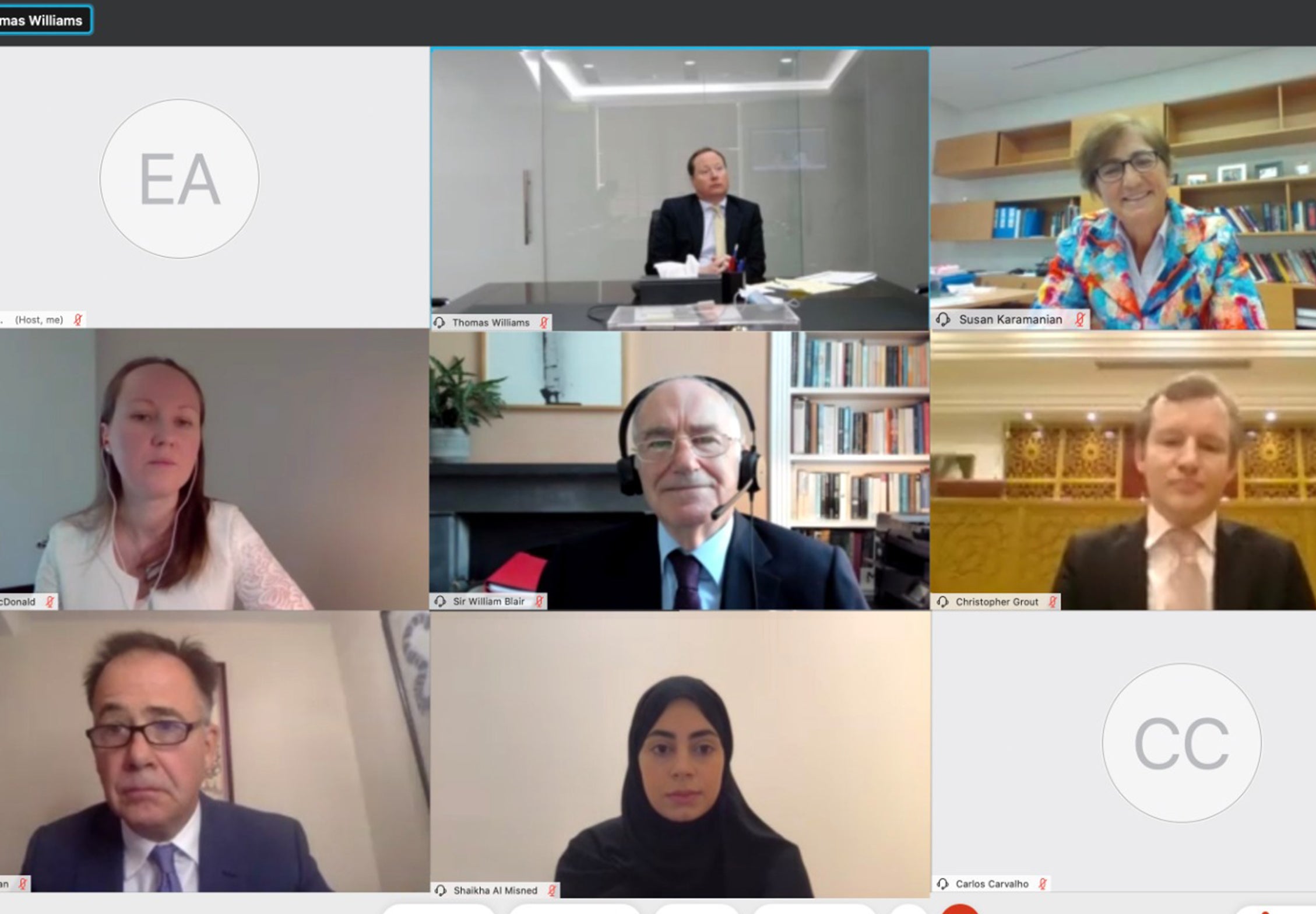
College of Law Webinar Considers Effects of COVID-19 on Commercial Contracts and Sovereign Borrowing
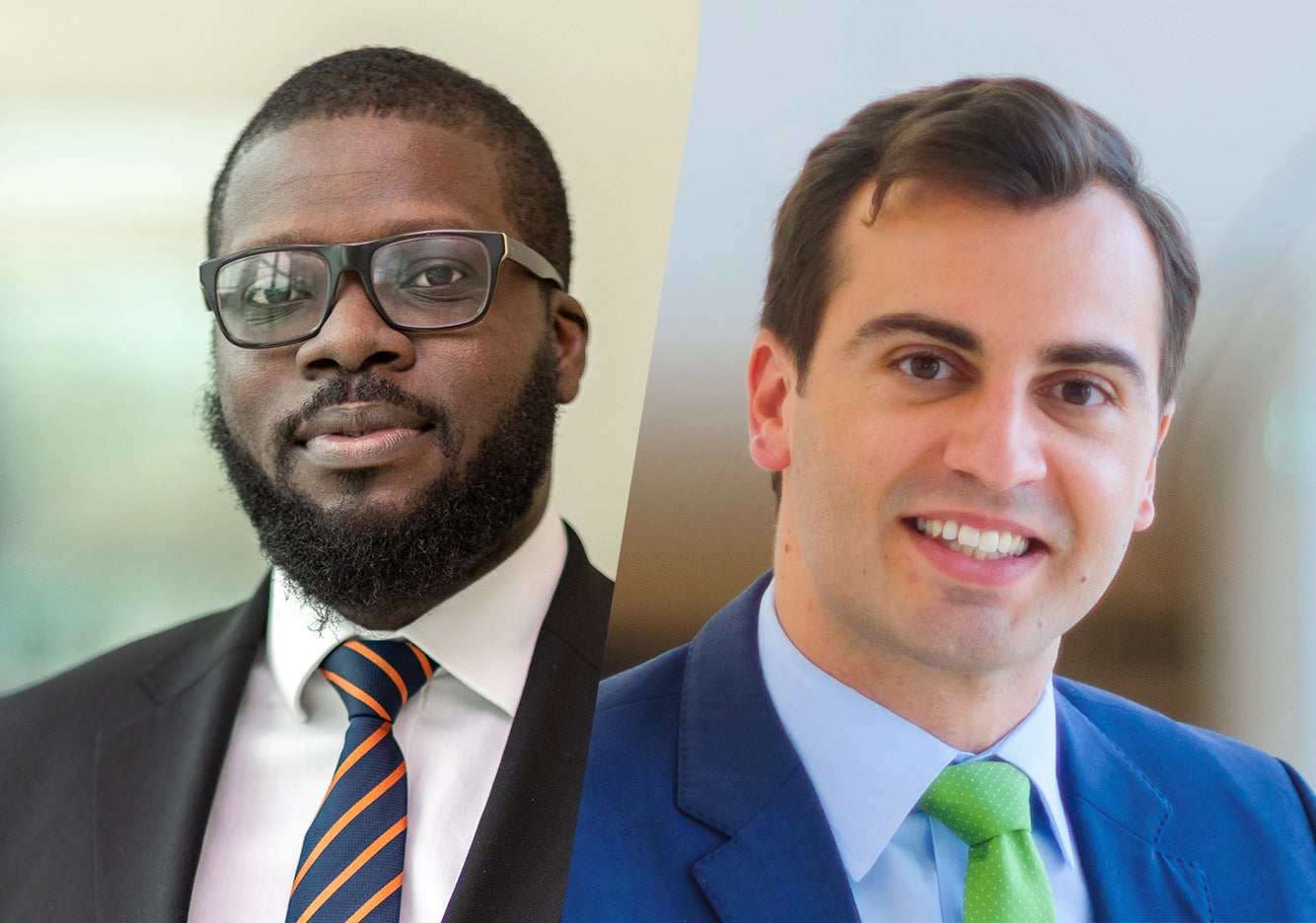
Qatar’s New Public-Private Partnership Law: Towards a Sustainable Approach to Development
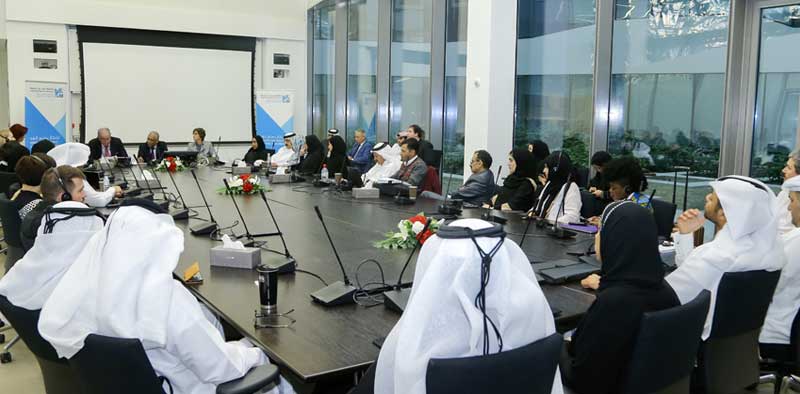
HBKU’s College of Law and Public Policy Hosts Minister-President of Paraguay’s Supreme Court of Justice

HBKU’S College of Law and Public Policy Colloquium to Examine Dispute Resolution Between Countries

HBKU Conference Highlights Need to Introduce Environmental Law to Higher Education in the Middle East

The Promise of Hybrid Dispute Resolution Fora Conference to be Held at HBKU’s College of Law and Public Policy

HBKU’s College of Law Faculty Selected on 2020 List of ‘35 Leaders of the Future in Taxation’

College of Law Event Joins Dots Between Eliminating Racism and Achieving Sustainable Societies

College of Law Webinar Considers Effects of COVID-19 on Commercial Contracts and Sovereign Borrowing

Qatar’s New Public-Private Partnership Law: Towards a Sustainable Approach to Development

HBKU’s College of Law and Public Policy Hosts Minister-President of Paraguay’s Supreme Court of Justice

HBKU’S College of Law and Public Policy Colloquium to Examine Dispute Resolution Between Countries

HBKU Conference Highlights Need to Introduce Environmental Law to Higher Education in the Middle East

The Promise of Hybrid Dispute Resolution Fora Conference to be Held at HBKU’s College of Law and Public Policy

HBKU’s College of Law Faculty Selected on 2020 List of ‘35 Leaders of the Future in Taxation’

College of Law Event Joins Dots Between Eliminating Racism and Achieving Sustainable Societies

College of Law Webinar Considers Effects of COVID-19 on Commercial Contracts and Sovereign Borrowing

Qatar’s New Public-Private Partnership Law: Towards a Sustainable Approach to Development

HBKU’s College of Law and Public Policy Hosts Minister-President of Paraguay’s Supreme Court of Justice

HBKU’S College of Law and Public Policy Colloquium to Examine Dispute Resolution Between Countries

HBKU Conference Highlights Need to Introduce Environmental Law to Higher Education in the Middle East

The Promise of Hybrid Dispute Resolution Fora Conference to be Held at HBKU’s College of Law and Public Policy

HBKU’s College of Law Faculty Selected on 2020 List of ‘35 Leaders of the Future in Taxation’

College of Law Event Joins Dots Between Eliminating Racism and Achieving Sustainable Societies

College of Law Webinar Considers Effects of COVID-19 on Commercial Contracts and Sovereign Borrowing

Qatar’s New Public-Private Partnership Law: Towards a Sustainable Approach to Development

HBKU’s College of Law and Public Policy Hosts Minister-President of Paraguay’s Supreme Court of Justice

HBKU’S College of Law and Public Policy Colloquium to Examine Dispute Resolution Between Countries

HBKU Conference Highlights Need to Introduce Environmental Law to Higher Education in the Middle East

The Promise of Hybrid Dispute Resolution Fora Conference to be Held at HBKU’s College of Law and Public Policy

HBKU’s College of Law Faculty Selected on 2020 List of ‘35 Leaders of the Future in Taxation’

College of Law Event Joins Dots Between Eliminating Racism and Achieving Sustainable Societies

College of Law Webinar Considers Effects of COVID-19 on Commercial Contracts and Sovereign Borrowing

Qatar’s New Public-Private Partnership Law: Towards a Sustainable Approach to Development

HBKU’s College of Law and Public Policy Hosts Minister-President of Paraguay’s Supreme Court of Justice

HBKU’S College of Law and Public Policy Colloquium to Examine Dispute Resolution Between Countries

HBKU Conference Highlights Need to Introduce Environmental Law to Higher Education in the Middle East

The Promise of Hybrid Dispute Resolution Fora Conference to be Held at HBKU’s College of Law and Public Policy

HBKU’s College of Law Faculty Selected on 2020 List of ‘35 Leaders of the Future in Taxation’

College of Law Event Joins Dots Between Eliminating Racism and Achieving Sustainable Societies

College of Law Webinar Considers Effects of COVID-19 on Commercial Contracts and Sovereign Borrowing

Qatar’s New Public-Private Partnership Law: Towards a Sustainable Approach to Development

HBKU’s College of Law and Public Policy Hosts Minister-President of Paraguay’s Supreme Court of Justice

HBKU’S College of Law and Public Policy Colloquium to Examine Dispute Resolution Between Countries

HBKU Conference Highlights Need to Introduce Environmental Law to Higher Education in the Middle East

The Promise of Hybrid Dispute Resolution Fora Conference to be Held at HBKU’s College of Law and Public Policy

HBKU’s College of Law Faculty Selected on 2020 List of ‘35 Leaders of the Future in Taxation’

College of Law Event Joins Dots Between Eliminating Racism and Achieving Sustainable Societies

College of Law Webinar Considers Effects of COVID-19 on Commercial Contracts and Sovereign Borrowing

Qatar’s New Public-Private Partnership Law: Towards a Sustainable Approach to Development

HBKU’s College of Law and Public Policy Hosts Minister-President of Paraguay’s Supreme Court of Justice

HBKU’S College of Law and Public Policy Colloquium to Examine Dispute Resolution Between Countries

HBKU Conference Highlights Need to Introduce Environmental Law to Higher Education in the Middle East

The Promise of Hybrid Dispute Resolution Fora Conference to be Held at HBKU’s College of Law and Public Policy

HBKU’s College of Law Faculty Selected on 2020 List of ‘35 Leaders of the Future in Taxation’

College of Law Event Joins Dots Between Eliminating Racism and Achieving Sustainable Societies

College of Law Webinar Considers Effects of COVID-19 on Commercial Contracts and Sovereign Borrowing

Qatar’s New Public-Private Partnership Law: Towards a Sustainable Approach to Development

HBKU’s College of Law and Public Policy Hosts Minister-President of Paraguay’s Supreme Court of Justice

HBKU’S College of Law and Public Policy Colloquium to Examine Dispute Resolution Between Countries

HBKU Conference Highlights Need to Introduce Environmental Law to Higher Education in the Middle East

The Promise of Hybrid Dispute Resolution Fora Conference to be Held at HBKU’s College of Law and Public Policy

HBKU’s College of Law Faculty Selected on 2020 List of ‘35 Leaders of the Future in Taxation’

College of Law Event Joins Dots Between Eliminating Racism and Achieving Sustainable Societies

College of Law Webinar Considers Effects of COVID-19 on Commercial Contracts and Sovereign Borrowing

Qatar’s New Public-Private Partnership Law: Towards a Sustainable Approach to Development

HBKU’s College of Law and Public Policy Hosts Minister-President of Paraguay’s Supreme Court of Justice

HBKU’S College of Law and Public Policy Colloquium to Examine Dispute Resolution Between Countries

HBKU Conference Highlights Need to Introduce Environmental Law to Higher Education in the Middle East

The Promise of Hybrid Dispute Resolution Fora Conference to be Held at HBKU’s College of Law and Public Policy

HBKU’s College of Law Faculty Selected on 2020 List of ‘35 Leaders of the Future in Taxation’

College of Law Event Joins Dots Between Eliminating Racism and Achieving Sustainable Societies

College of Law Webinar Considers Effects of COVID-19 on Commercial Contracts and Sovereign Borrowing

Qatar’s New Public-Private Partnership Law: Towards a Sustainable Approach to Development

HBKU’s College of Law and Public Policy Hosts Minister-President of Paraguay’s Supreme Court of Justice

HBKU’S College of Law and Public Policy Colloquium to Examine Dispute Resolution Between Countries

HBKU Conference Highlights Need to Introduce Environmental Law to Higher Education in the Middle East

The Promise of Hybrid Dispute Resolution Fora Conference to be Held at HBKU’s College of Law and Public Policy

HBKU’s College of Law Faculty Selected on 2020 List of ‘35 Leaders of the Future in Taxation’

College of Law Event Joins Dots Between Eliminating Racism and Achieving Sustainable Societies

College of Law Webinar Considers Effects of COVID-19 on Commercial Contracts and Sovereign Borrowing

Qatar’s New Public-Private Partnership Law: Towards a Sustainable Approach to Development

HBKU’s College of Law and Public Policy Hosts Minister-President of Paraguay’s Supreme Court of Justice

HBKU’S College of Law and Public Policy Colloquium to Examine Dispute Resolution Between Countries

HBKU Conference Highlights Need to Introduce Environmental Law to Higher Education in the Middle East

The Promise of Hybrid Dispute Resolution Fora Conference to be Held at HBKU’s College of Law and Public Policy

HBKU’s College of Law Faculty Selected on 2020 List of ‘35 Leaders of the Future in Taxation’

College of Law Event Joins Dots Between Eliminating Racism and Achieving Sustainable Societies

College of Law Webinar Considers Effects of COVID-19 on Commercial Contracts and Sovereign Borrowing

Qatar’s New Public-Private Partnership Law: Towards a Sustainable Approach to Development

HBKU’s College of Law and Public Policy Hosts Minister-President of Paraguay’s Supreme Court of Justice

HBKU’S College of Law and Public Policy Colloquium to Examine Dispute Resolution Between Countries

HBKU Conference Highlights Need to Introduce Environmental Law to Higher Education in the Middle East

The Promise of Hybrid Dispute Resolution Fora Conference to be Held at HBKU’s College of Law and Public Policy

HBKU’s College of Law Faculty Selected on 2020 List of ‘35 Leaders of the Future in Taxation’

College of Law Event Joins Dots Between Eliminating Racism and Achieving Sustainable Societies

College of Law Webinar Considers Effects of COVID-19 on Commercial Contracts and Sovereign Borrowing

Qatar’s New Public-Private Partnership Law: Towards a Sustainable Approach to Development

HBKU’s College of Law and Public Policy Hosts Minister-President of Paraguay’s Supreme Court of Justice

HBKU’S College of Law and Public Policy Colloquium to Examine Dispute Resolution Between Countries

HBKU Conference Highlights Need to Introduce Environmental Law to Higher Education in the Middle East

The Promise of Hybrid Dispute Resolution Fora Conference to be Held at HBKU’s College of Law and Public Policy

HBKU’s College of Law Faculty Selected on 2020 List of ‘35 Leaders of the Future in Taxation’

College of Law Event Joins Dots Between Eliminating Racism and Achieving Sustainable Societies

College of Law Webinar Considers Effects of COVID-19 on Commercial Contracts and Sovereign Borrowing

Qatar’s New Public-Private Partnership Law: Towards a Sustainable Approach to Development

HBKU’s College of Law and Public Policy Hosts Minister-President of Paraguay’s Supreme Court of Justice

HBKU’S College of Law and Public Policy Colloquium to Examine Dispute Resolution Between Countries

HBKU Conference Highlights Need to Introduce Environmental Law to Higher Education in the Middle East

The Promise of Hybrid Dispute Resolution Fora Conference to be Held at HBKU’s College of Law and Public Policy

HBKU’s College of Law Faculty Selected on 2020 List of ‘35 Leaders of the Future in Taxation’

College of Law Event Joins Dots Between Eliminating Racism and Achieving Sustainable Societies

College of Law Webinar Considers Effects of COVID-19 on Commercial Contracts and Sovereign Borrowing

Qatar’s New Public-Private Partnership Law: Towards a Sustainable Approach to Development

HBKU’s College of Law and Public Policy Hosts Minister-President of Paraguay’s Supreme Court of Justice

HBKU’S College of Law and Public Policy Colloquium to Examine Dispute Resolution Between Countries

HBKU Conference Highlights Need to Introduce Environmental Law to Higher Education in the Middle East

The Promise of Hybrid Dispute Resolution Fora Conference to be Held at HBKU’s College of Law and Public Policy

HBKU’s College of Law Faculty Selected on 2020 List of ‘35 Leaders of the Future in Taxation’

College of Law Event Joins Dots Between Eliminating Racism and Achieving Sustainable Societies

College of Law Webinar Considers Effects of COVID-19 on Commercial Contracts and Sovereign Borrowing

Qatar’s New Public-Private Partnership Law: Towards a Sustainable Approach to Development

HBKU’s College of Law and Public Policy Hosts Minister-President of Paraguay’s Supreme Court of Justice

HBKU’S College of Law and Public Policy Colloquium to Examine Dispute Resolution Between Countries

HBKU Conference Highlights Need to Introduce Environmental Law to Higher Education in the Middle East

The Promise of Hybrid Dispute Resolution Fora Conference to be Held at HBKU’s College of Law and Public Policy

HBKU’s College of Law Faculty Selected on 2020 List of ‘35 Leaders of the Future in Taxation’

College of Law Event Joins Dots Between Eliminating Racism and Achieving Sustainable Societies

College of Law Webinar Considers Effects of COVID-19 on Commercial Contracts and Sovereign Borrowing

Qatar’s New Public-Private Partnership Law: Towards a Sustainable Approach to Development

HBKU’s College of Law and Public Policy Hosts Minister-President of Paraguay’s Supreme Court of Justice

HBKU’S College of Law and Public Policy Colloquium to Examine Dispute Resolution Between Countries

HBKU Conference Highlights Need to Introduce Environmental Law to Higher Education in the Middle East

The Promise of Hybrid Dispute Resolution Fora Conference to be Held at HBKU’s College of Law and Public Policy

HBKU’s College of Law Faculty Selected on 2020 List of ‘35 Leaders of the Future in Taxation’

College of Law Event Joins Dots Between Eliminating Racism and Achieving Sustainable Societies

College of Law Webinar Considers Effects of COVID-19 on Commercial Contracts and Sovereign Borrowing

Qatar’s New Public-Private Partnership Law: Towards a Sustainable Approach to Development

HBKU’s College of Law and Public Policy Hosts Minister-President of Paraguay’s Supreme Court of Justice

HBKU’S College of Law and Public Policy Colloquium to Examine Dispute Resolution Between Countries

HBKU Conference Highlights Need to Introduce Environmental Law to Higher Education in the Middle East

The Promise of Hybrid Dispute Resolution Fora Conference to be Held at HBKU’s College of Law and Public Policy

HBKU’s College of Law Faculty Selected on 2020 List of ‘35 Leaders of the Future in Taxation’

College of Law Event Joins Dots Between Eliminating Racism and Achieving Sustainable Societies

College of Law Webinar Considers Effects of COVID-19 on Commercial Contracts and Sovereign Borrowing

Qatar’s New Public-Private Partnership Law: Towards a Sustainable Approach to Development

HBKU’s College of Law and Public Policy Hosts Minister-President of Paraguay’s Supreme Court of Justice

HBKU’S College of Law and Public Policy Colloquium to Examine Dispute Resolution Between Countries

HBKU Conference Highlights Need to Introduce Environmental Law to Higher Education in the Middle East

The Promise of Hybrid Dispute Resolution Fora Conference to be Held at HBKU’s College of Law and Public Policy

HBKU’s College of Law Faculty Selected on 2020 List of ‘35 Leaders of the Future in Taxation’

College of Law Event Joins Dots Between Eliminating Racism and Achieving Sustainable Societies

College of Law Webinar Considers Effects of COVID-19 on Commercial Contracts and Sovereign Borrowing

Qatar’s New Public-Private Partnership Law: Towards a Sustainable Approach to Development

HBKU’s College of Law and Public Policy Hosts Minister-President of Paraguay’s Supreme Court of Justice

HBKU’S College of Law and Public Policy Colloquium to Examine Dispute Resolution Between Countries

HBKU Conference Highlights Need to Introduce Environmental Law to Higher Education in the Middle East

The Promise of Hybrid Dispute Resolution Fora Conference to be Held at HBKU’s College of Law and Public Policy

HBKU’s College of Law Faculty Selected on 2020 List of ‘35 Leaders of the Future in Taxation’

College of Law Event Joins Dots Between Eliminating Racism and Achieving Sustainable Societies

College of Law Webinar Considers Effects of COVID-19 on Commercial Contracts and Sovereign Borrowing

Qatar’s New Public-Private Partnership Law: Towards a Sustainable Approach to Development

HBKU’s College of Law and Public Policy Hosts Minister-President of Paraguay’s Supreme Court of Justice

HBKU’S College of Law and Public Policy Colloquium to Examine Dispute Resolution Between Countries

HBKU Conference Highlights Need to Introduce Environmental Law to Higher Education in the Middle East

The Promise of Hybrid Dispute Resolution Fora Conference to be Held at HBKU’s College of Law and Public Policy

HBKU’s College of Law Faculty Selected on 2020 List of ‘35 Leaders of the Future in Taxation’

College of Law Event Joins Dots Between Eliminating Racism and Achieving Sustainable Societies

College of Law Webinar Considers Effects of COVID-19 on Commercial Contracts and Sovereign Borrowing

Qatar’s New Public-Private Partnership Law: Towards a Sustainable Approach to Development

HBKU’s College of Law and Public Policy Hosts Minister-President of Paraguay’s Supreme Court of Justice

HBKU’S College of Law and Public Policy Colloquium to Examine Dispute Resolution Between Countries

HBKU Conference Highlights Need to Introduce Environmental Law to Higher Education in the Middle East

The Promise of Hybrid Dispute Resolution Fora Conference to be Held at HBKU’s College of Law and Public Policy

HBKU’s College of Law Faculty Selected on 2020 List of ‘35 Leaders of the Future in Taxation’

College of Law Event Joins Dots Between Eliminating Racism and Achieving Sustainable Societies

College of Law Webinar Considers Effects of COVID-19 on Commercial Contracts and Sovereign Borrowing

Qatar’s New Public-Private Partnership Law: Towards a Sustainable Approach to Development

HBKU’s College of Law and Public Policy Hosts Minister-President of Paraguay’s Supreme Court of Justice

HBKU’S College of Law and Public Policy Colloquium to Examine Dispute Resolution Between Countries

HBKU Conference Highlights Need to Introduce Environmental Law to Higher Education in the Middle East

The Promise of Hybrid Dispute Resolution Fora Conference to be Held at HBKU’s College of Law and Public Policy

HBKU’s College of Law Faculty Selected on 2020 List of ‘35 Leaders of the Future in Taxation’

College of Law Event Joins Dots Between Eliminating Racism and Achieving Sustainable Societies

College of Law Webinar Considers Effects of COVID-19 on Commercial Contracts and Sovereign Borrowing

Qatar’s New Public-Private Partnership Law: Towards a Sustainable Approach to Development

HBKU’s College of Law and Public Policy Hosts Minister-President of Paraguay’s Supreme Court of Justice

HBKU’S College of Law and Public Policy Colloquium to Examine Dispute Resolution Between Countries

HBKU Conference Highlights Need to Introduce Environmental Law to Higher Education in the Middle East

The Promise of Hybrid Dispute Resolution Fora Conference to be Held at HBKU’s College of Law and Public Policy

HBKU’s College of Law Faculty Selected on 2020 List of ‘35 Leaders of the Future in Taxation’

College of Law Event Joins Dots Between Eliminating Racism and Achieving Sustainable Societies

College of Law Webinar Considers Effects of COVID-19 on Commercial Contracts and Sovereign Borrowing

Qatar’s New Public-Private Partnership Law: Towards a Sustainable Approach to Development

HBKU’s College of Law and Public Policy Hosts Minister-President of Paraguay’s Supreme Court of Justice

HBKU’S College of Law and Public Policy Colloquium to Examine Dispute Resolution Between Countries

HBKU Conference Highlights Need to Introduce Environmental Law to Higher Education in the Middle East

The Promise of Hybrid Dispute Resolution Fora Conference to be Held at HBKU’s College of Law and Public Policy

HBKU’s College of Law Faculty Selected on 2020 List of ‘35 Leaders of the Future in Taxation’

College of Law Event Joins Dots Between Eliminating Racism and Achieving Sustainable Societies

College of Law Webinar Considers Effects of COVID-19 on Commercial Contracts and Sovereign Borrowing

Qatar’s New Public-Private Partnership Law: Towards a Sustainable Approach to Development

HBKU’s College of Law and Public Policy Hosts Minister-President of Paraguay’s Supreme Court of Justice

HBKU’S College of Law and Public Policy Colloquium to Examine Dispute Resolution Between Countries

HBKU Conference Highlights Need to Introduce Environmental Law to Higher Education in the Middle East

The Promise of Hybrid Dispute Resolution Fora Conference to be Held at HBKU’s College of Law and Public Policy

HBKU’s College of Law Faculty Selected on 2020 List of ‘35 Leaders of the Future in Taxation’

College of Law Event Joins Dots Between Eliminating Racism and Achieving Sustainable Societies

College of Law Webinar Considers Effects of COVID-19 on Commercial Contracts and Sovereign Borrowing

Qatar’s New Public-Private Partnership Law: Towards a Sustainable Approach to Development

HBKU’s College of Law and Public Policy Hosts Minister-President of Paraguay’s Supreme Court of Justice

HBKU’S College of Law and Public Policy Colloquium to Examine Dispute Resolution Between Countries

HBKU Conference Highlights Need to Introduce Environmental Law to Higher Education in the Middle East

The Promise of Hybrid Dispute Resolution Fora Conference to be Held at HBKU’s College of Law and Public Policy

HBKU’s College of Law Faculty Selected on 2020 List of ‘35 Leaders of the Future in Taxation’

College of Law Event Joins Dots Between Eliminating Racism and Achieving Sustainable Societies

College of Law Webinar Considers Effects of COVID-19 on Commercial Contracts and Sovereign Borrowing

Qatar’s New Public-Private Partnership Law: Towards a Sustainable Approach to Development

HBKU’s College of Law and Public Policy Hosts Minister-President of Paraguay’s Supreme Court of Justice

HBKU’S College of Law and Public Policy Colloquium to Examine Dispute Resolution Between Countries

HBKU Conference Highlights Need to Introduce Environmental Law to Higher Education in the Middle East

The Promise of Hybrid Dispute Resolution Fora Conference to be Held at HBKU’s College of Law and Public Policy

HBKU’s College of Law Faculty Selected on 2020 List of ‘35 Leaders of the Future in Taxation’

College of Law Event Joins Dots Between Eliminating Racism and Achieving Sustainable Societies

College of Law Webinar Considers Effects of COVID-19 on Commercial Contracts and Sovereign Borrowing

Qatar’s New Public-Private Partnership Law: Towards a Sustainable Approach to Development

HBKU’s College of Law and Public Policy Hosts Minister-President of Paraguay’s Supreme Court of Justice

HBKU’S College of Law and Public Policy Colloquium to Examine Dispute Resolution Between Countries

HBKU Conference Highlights Need to Introduce Environmental Law to Higher Education in the Middle East

The Promise of Hybrid Dispute Resolution Fora Conference to be Held at HBKU’s College of Law and Public Policy

HBKU’s College of Law Faculty Selected on 2020 List of ‘35 Leaders of the Future in Taxation’

College of Law Event Joins Dots Between Eliminating Racism and Achieving Sustainable Societies

College of Law Webinar Considers Effects of COVID-19 on Commercial Contracts and Sovereign Borrowing

Qatar’s New Public-Private Partnership Law: Towards a Sustainable Approach to Development

HBKU’s College of Law and Public Policy Hosts Minister-President of Paraguay’s Supreme Court of Justice

HBKU’S College of Law and Public Policy Colloquium to Examine Dispute Resolution Between Countries

HBKU Conference Highlights Need to Introduce Environmental Law to Higher Education in the Middle East

The Promise of Hybrid Dispute Resolution Fora Conference to be Held at HBKU’s College of Law and Public Policy

HBKU’s College of Law Faculty Selected on 2020 List of ‘35 Leaders of the Future in Taxation’

College of Law Event Joins Dots Between Eliminating Racism and Achieving Sustainable Societies

College of Law Webinar Considers Effects of COVID-19 on Commercial Contracts and Sovereign Borrowing

Qatar’s New Public-Private Partnership Law: Towards a Sustainable Approach to Development

HBKU’s College of Law and Public Policy Hosts Minister-President of Paraguay’s Supreme Court of Justice

HBKU’S College of Law and Public Policy Colloquium to Examine Dispute Resolution Between Countries

HBKU Conference Highlights Need to Introduce Environmental Law to Higher Education in the Middle East

The Promise of Hybrid Dispute Resolution Fora Conference to be Held at HBKU’s College of Law and Public Policy

HBKU’s College of Law Faculty Selected on 2020 List of ‘35 Leaders of the Future in Taxation’

College of Law Event Joins Dots Between Eliminating Racism and Achieving Sustainable Societies

College of Law Webinar Considers Effects of COVID-19 on Commercial Contracts and Sovereign Borrowing

Qatar’s New Public-Private Partnership Law: Towards a Sustainable Approach to Development

HBKU’s College of Law and Public Policy Hosts Minister-President of Paraguay’s Supreme Court of Justice

HBKU’S College of Law and Public Policy Colloquium to Examine Dispute Resolution Between Countries

HBKU Conference Highlights Need to Introduce Environmental Law to Higher Education in the Middle East

The Promise of Hybrid Dispute Resolution Fora Conference to be Held at HBKU’s College of Law and Public Policy

HBKU’s College of Law Faculty Selected on 2020 List of ‘35 Leaders of the Future in Taxation’

College of Law Event Joins Dots Between Eliminating Racism and Achieving Sustainable Societies

College of Law Webinar Considers Effects of COVID-19 on Commercial Contracts and Sovereign Borrowing

Qatar’s New Public-Private Partnership Law: Towards a Sustainable Approach to Development

HBKU’s College of Law and Public Policy Hosts Minister-President of Paraguay’s Supreme Court of Justice

HBKU’S College of Law and Public Policy Colloquium to Examine Dispute Resolution Between Countries

HBKU Conference Highlights Need to Introduce Environmental Law to Higher Education in the Middle East

The Promise of Hybrid Dispute Resolution Fora Conference to be Held at HBKU’s College of Law and Public Policy

HBKU’s College of Law Faculty Selected on 2020 List of ‘35 Leaders of the Future in Taxation’

College of Law Event Joins Dots Between Eliminating Racism and Achieving Sustainable Societies

College of Law Webinar Considers Effects of COVID-19 on Commercial Contracts and Sovereign Borrowing

Qatar’s New Public-Private Partnership Law: Towards a Sustainable Approach to Development

HBKU’s College of Law and Public Policy Hosts Minister-President of Paraguay’s Supreme Court of Justice

HBKU’S College of Law and Public Policy Colloquium to Examine Dispute Resolution Between Countries

HBKU Conference Highlights Need to Introduce Environmental Law to Higher Education in the Middle East

The Promise of Hybrid Dispute Resolution Fora Conference to be Held at HBKU’s College of Law and Public Policy

HBKU’s College of Law Faculty Selected on 2020 List of ‘35 Leaders of the Future in Taxation’

College of Law Event Joins Dots Between Eliminating Racism and Achieving Sustainable Societies

College of Law Webinar Considers Effects of COVID-19 on Commercial Contracts and Sovereign Borrowing

Qatar’s New Public-Private Partnership Law: Towards a Sustainable Approach to Development

HBKU’s College of Law and Public Policy Hosts Minister-President of Paraguay’s Supreme Court of Justice

HBKU’S College of Law and Public Policy Colloquium to Examine Dispute Resolution Between Countries

HBKU Conference Highlights Need to Introduce Environmental Law to Higher Education in the Middle East

The Promise of Hybrid Dispute Resolution Fora Conference to be Held at HBKU’s College of Law and Public Policy

HBKU’s College of Law Faculty Selected on 2020 List of ‘35 Leaders of the Future in Taxation’

College of Law Event Joins Dots Between Eliminating Racism and Achieving Sustainable Societies

College of Law Webinar Considers Effects of COVID-19 on Commercial Contracts and Sovereign Borrowing

Qatar’s New Public-Private Partnership Law: Towards a Sustainable Approach to Development

HBKU’s College of Law and Public Policy Hosts Minister-President of Paraguay’s Supreme Court of Justice

HBKU’S College of Law and Public Policy Colloquium to Examine Dispute Resolution Between Countries

HBKU Conference Highlights Need to Introduce Environmental Law to Higher Education in the Middle East

The Promise of Hybrid Dispute Resolution Fora Conference to be Held at HBKU’s College of Law and Public Policy

HBKU’s College of Law Faculty Selected on 2020 List of ‘35 Leaders of the Future in Taxation’

College of Law Event Joins Dots Between Eliminating Racism and Achieving Sustainable Societies

College of Law Webinar Considers Effects of COVID-19 on Commercial Contracts and Sovereign Borrowing

Qatar’s New Public-Private Partnership Law: Towards a Sustainable Approach to Development

HBKU’s College of Law and Public Policy Hosts Minister-President of Paraguay’s Supreme Court of Justice

HBKU’S College of Law and Public Policy Colloquium to Examine Dispute Resolution Between Countries

HBKU Conference Highlights Need to Introduce Environmental Law to Higher Education in the Middle East

The Promise of Hybrid Dispute Resolution Fora Conference to be Held at HBKU’s College of Law and Public Policy

HBKU’s College of Law Faculty Selected on 2020 List of ‘35 Leaders of the Future in Taxation’

College of Law Event Joins Dots Between Eliminating Racism and Achieving Sustainable Societies

College of Law Webinar Considers Effects of COVID-19 on Commercial Contracts and Sovereign Borrowing

Qatar’s New Public-Private Partnership Law: Towards a Sustainable Approach to Development

HBKU’s College of Law and Public Policy Hosts Minister-President of Paraguay’s Supreme Court of Justice

HBKU’S College of Law and Public Policy Colloquium to Examine Dispute Resolution Between Countries

HBKU Conference Highlights Need to Introduce Environmental Law to Higher Education in the Middle East

The Promise of Hybrid Dispute Resolution Fora Conference to be Held at HBKU’s College of Law and Public Policy

HBKU’s College of Law Faculty Selected on 2020 List of ‘35 Leaders of the Future in Taxation’

College of Law Event Joins Dots Between Eliminating Racism and Achieving Sustainable Societies

College of Law Webinar Considers Effects of COVID-19 on Commercial Contracts and Sovereign Borrowing

Qatar’s New Public-Private Partnership Law: Towards a Sustainable Approach to Development

HBKU’s College of Law and Public Policy Hosts Minister-President of Paraguay’s Supreme Court of Justice

HBKU’S College of Law and Public Policy Colloquium to Examine Dispute Resolution Between Countries

HBKU Conference Highlights Need to Introduce Environmental Law to Higher Education in the Middle East

The Promise of Hybrid Dispute Resolution Fora Conference to be Held at HBKU’s College of Law and Public Policy

HBKU’s College of Law Faculty Selected on 2020 List of ‘35 Leaders of the Future in Taxation’

College of Law Event Joins Dots Between Eliminating Racism and Achieving Sustainable Societies

College of Law Webinar Considers Effects of COVID-19 on Commercial Contracts and Sovereign Borrowing

Qatar’s New Public-Private Partnership Law: Towards a Sustainable Approach to Development

HBKU’s College of Law and Public Policy Hosts Minister-President of Paraguay’s Supreme Court of Justice

HBKU’S College of Law and Public Policy Colloquium to Examine Dispute Resolution Between Countries

HBKU Conference Highlights Need to Introduce Environmental Law to Higher Education in the Middle East









